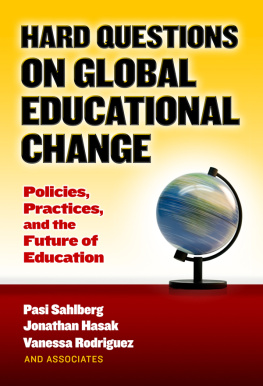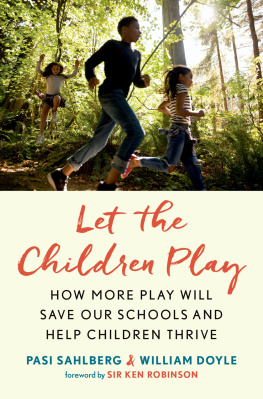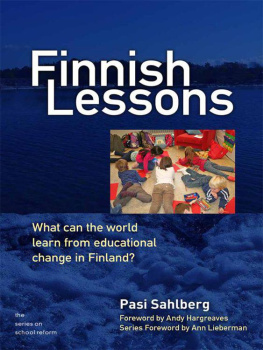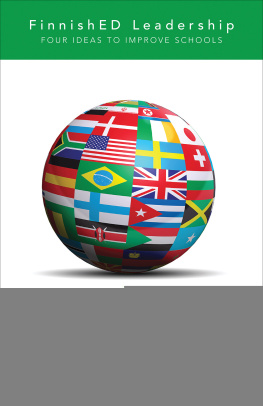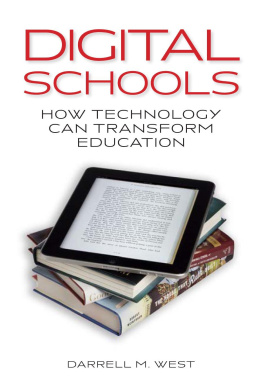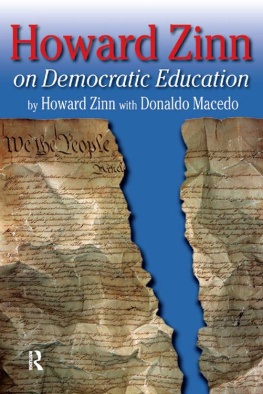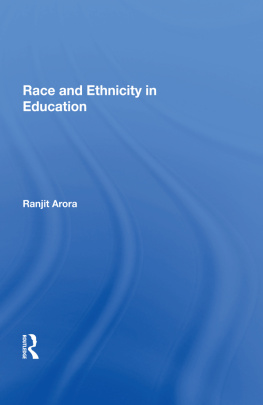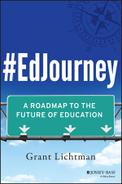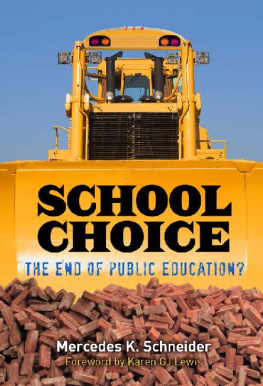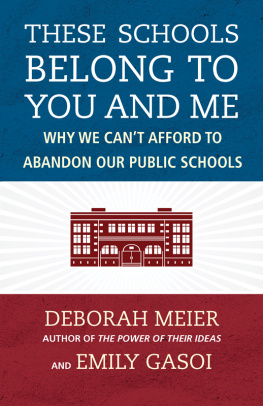Pasi Sahlberg - Hard Questions on Global Educational Change: Policies, Practices, and the Future of Education
Here you can read online Pasi Sahlberg - Hard Questions on Global Educational Change: Policies, Practices, and the Future of Education full text of the book (entire story) in english for free. Download pdf and epub, get meaning, cover and reviews about this ebook. year: 2016, publisher: Teachers College Press, genre: Politics. Description of the work, (preface) as well as reviews are available. Best literature library LitArk.com created for fans of good reading and offers a wide selection of genres:
Romance novel
Science fiction
Adventure
Detective
Science
History
Home and family
Prose
Art
Politics
Computer
Non-fiction
Religion
Business
Children
Humor
Choose a favorite category and find really read worthwhile books. Enjoy immersion in the world of imagination, feel the emotions of the characters or learn something new for yourself, make an fascinating discovery.
- Book:Hard Questions on Global Educational Change: Policies, Practices, and the Future of Education
- Author:
- Publisher:Teachers College Press
- Genre:
- Year:2016
- Rating:5 / 5
- Favourites:Add to favourites
- Your mark:
Hard Questions on Global Educational Change: Policies, Practices, and the Future of Education: summary, description and annotation
We offer to read an annotation, description, summary or preface (depends on what the author of the book "Hard Questions on Global Educational Change: Policies, Practices, and the Future of Education" wrote himself). If you haven't found the necessary information about the book — write in the comments, we will try to find it.
This new book, from internationally renowned education scholar Pasi Sahlberg and his colleagues, focuses on some of the most controversial issues in contemporary education reform around the world. The authors devote a chapter to each of these hard questions:
- Does parental choice improve education systems?
- Is there a future for teacher unions?
- What is the right answer to the standardized testing question
- Can schools prepare children for the 21st-century workplace?
- Will technology save schools?
- Can anyone be a teacher?
- Should higher education be for the public good?
- What knowledge and skills should an educator have?
Each educational change question sheds much-needed light on todays large-scale education policies and related reforms around the world. The authors focus on what makes each question globally significant, what we know from international research, and what can be inferred from benchmark evidence. The final chapter offers a model for policymakers with implications for teaching, learning, and schooling overall.
This is an impressive and engaging book. If you care about the impacts of technology, testing, and teacher education designs, then this book will stretch your thinking and challenge your assumptions.
Andy Hargreaves, Boston College
Fascinating case studies open up our imaginations and provide clues for the most sustainable pathways forward for educators in the years to come.
Dennis Shirley, Boston College
Features enlightening chapters with an international perspective for educators and teacher educators alike. Highly recommended.
David C. Berliner, Arizona State University
Pasi Sahlberg: author's other books
Who wrote Hard Questions on Global Educational Change: Policies, Practices, and the Future of Education? Find out the surname, the name of the author of the book and a list of all author's works by series.

